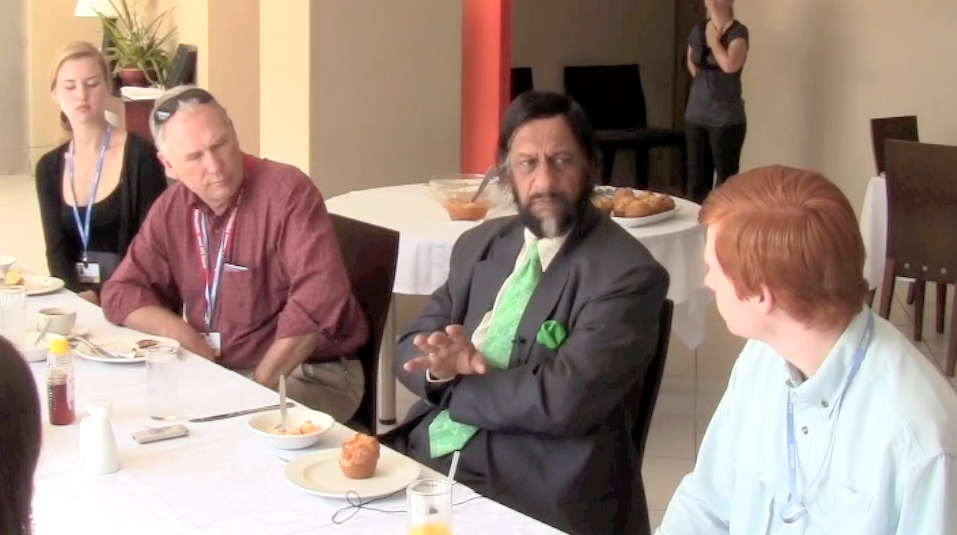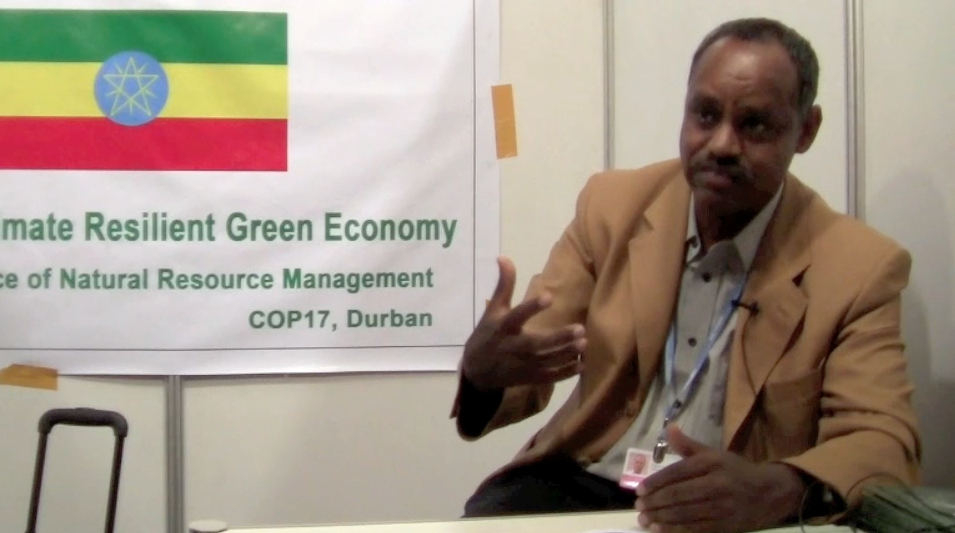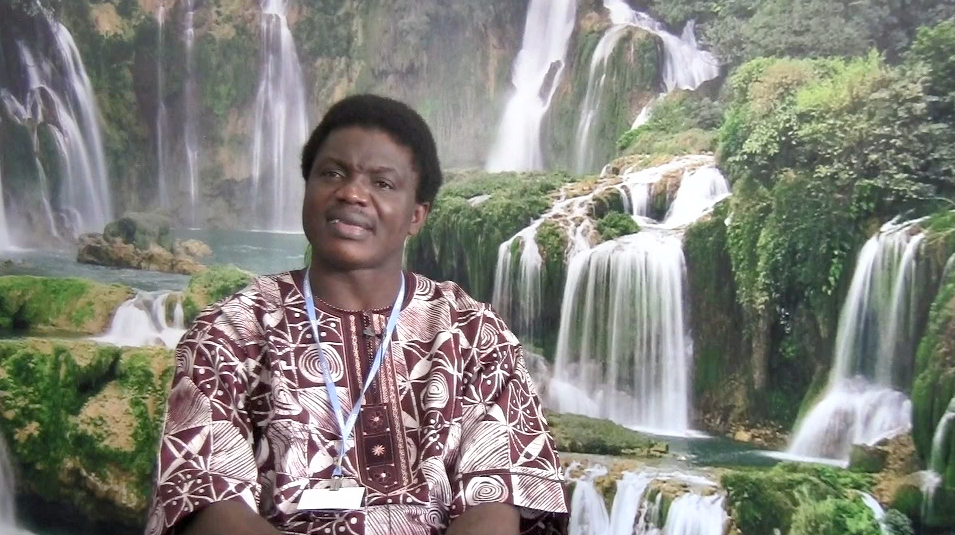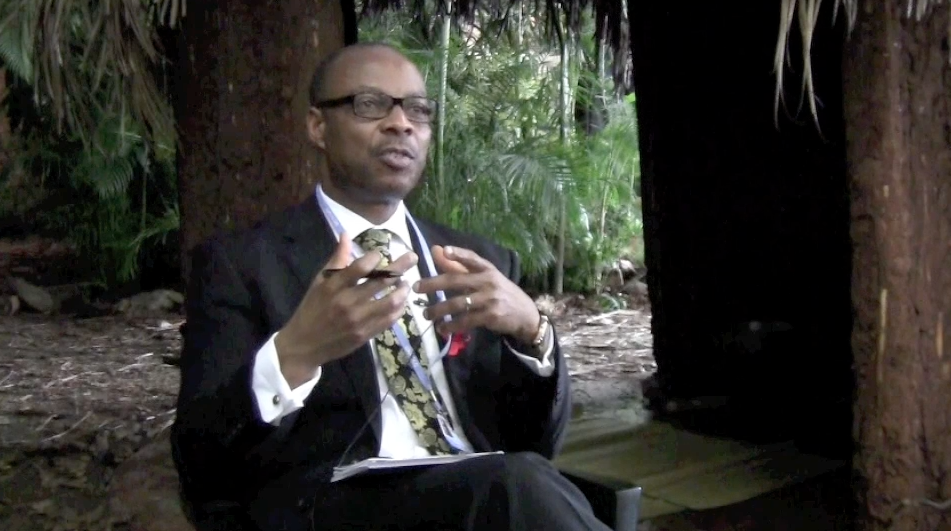Dr. Rajendra K. Pachauri, Chairperson for the Intergovernmental Panel on Climate Change, discusses how adaptation is going to take a lot of involvement at the local level with state and national involvement to ensure capacity is built. However, mitigation efforts need to take place at a global level because it is a global issue. He also explains how the IPCC increases local capacity of low development regions to collect climate data and understand how climate change will affect them so they can adapt accordingly.
Interviewed by the Dickinson Climate Mosaic on December 7, 2011, COP 17, Durban, South Africa




